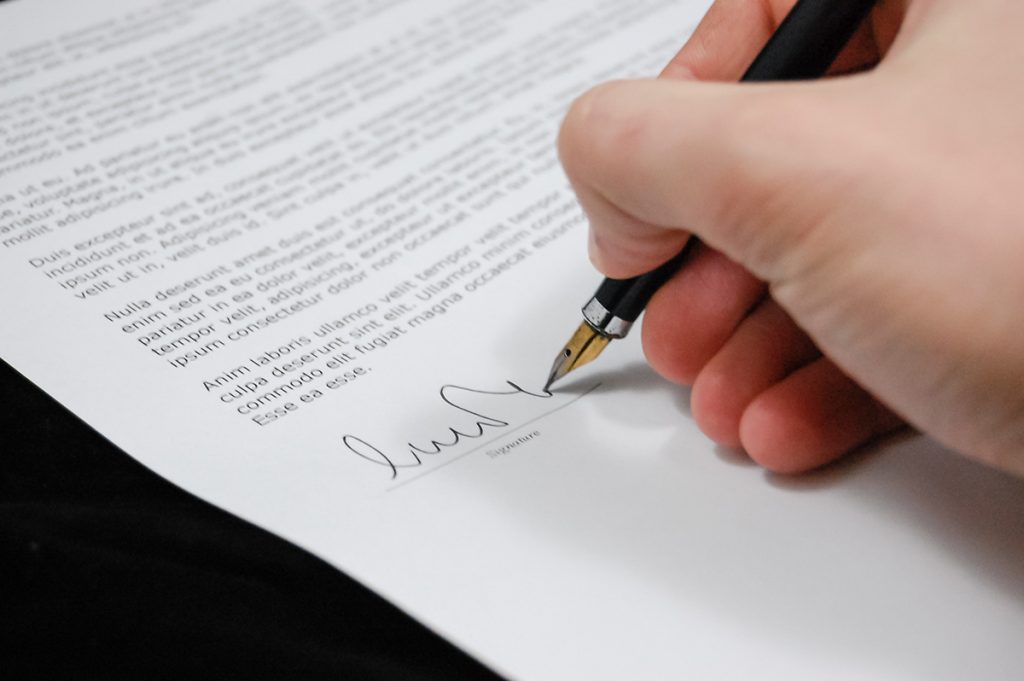Dubai is a popular location for metropolises seeking rich employment prospects and pleasant lifestyles. Thousands of expats relocate to Dubai in search of a better life. As a result, the thriving city boasts a diverse range of residential properties to support its expanding population. If you’re new to town and don’t know where to start looking for your first house, we’ve got you covered! Here is our in-depth guide to renting in Dubai.
BEGINNER’S GUIDE TO RENTING IN DUBAI
Here is a checklist of everything you need to do if you are searching for an apartment or villa to rent in Dubai. This guide to renting in Dubai will help you discover the perfect home for you and your family.
PROPERTY LISTINGS SEARCH AND SHORTLIST
For many people, renting in Dubai begins with a fast web search. You may use any portal to find houses for rent in Dubai that meet your specific needs and budget. Some examples of Dubai residential homes
- Apartments
- Townhouses
- Residential Land
- Villas
- Penthouses
- Apartments in a hotel
Once you’ve identified a property, you may read the description to learn more about its many features. This includes, but is not limited to, information such as:
- The property’s annual rent
- Location of the rental apartment or villa in Dubai
- The number of rooms and bathrooms
- Whether equipped or unfurnished
- Detailed list of facilities
- Schools, parks, hospitals, and restaurants are all nearby.

Before beginning your search, it is a good idea to have a broad concept of what sort of home you are looking for, what you can afford, how many rooms you require, and the preferred location. To ensure that you view only relevant items, you may restrict the search results for villas and apartments for rent in Dubai based on characteristics such as budget, property type, location, number of bedrooms, and bathrooms.
If you are looking to rent an apartment in Dubai, you may choose from comfortable studios to spacious 3-bed apartments, with certain residential neighborhoods providing bigger 4 and 5-bedroom apartments. When it comes to villas for rent in Dubai, you can find everything from little 2-bedroom residences to grandiose properties with over 11 bedrooms!
There are many different companies listed on the portals. Choose the ones that appear to be the most desirable to you based on the photographs, annual rent, amenities, and location. Set up a visit to see your possible new home with the contact person (typically an agency or the landlord). You may even store searches and return to them later. This is an extremely useful tool if you wish to look at a few houses before contacting the agent.
It is also critical to confirm the agency commission when renting a property. Typically, agencies would charge between 2% and 5% of the annual rent. However, it is usually preferable to have clarification before entering into an agreement.
GO TO THE PROPERTY
Once you’ve scheduled an on-site visit with the agent, go out to the location with a list of questions to ask them. Arrive early and spend some time scanning the surrounding area. Examine the property closely and plan a second visit at a different time to get a better sense of what it might be like to live there.
Simply check all the items that apply to you before signing the rental agreement.
A FEW FACTORS TO CONSIDER WHEN LOOKING FOR RENTAL PROPERTY IN DUBAI
For the section:
- Is there enough natural light in the apartment or villa?
- Do you enjoy the view?
- Are the rooms sufficiently large?
- Is the condition of the fixtures and fittings satisfactory?
- Is it in need of repainting?
- Is the plumbing operational?
- Are the electrical outlets in the proper location?
- Do renters have a parking space assigned to them?
- Is the structure protected by security measures such as cameras, a security guard, and an intercom?
- Is there a gym and a swimming pool available?
* Before signing the rental agreement, tenants can ask the landlord to remedy maintenance concerns or include stipulations in the agreement to that effect.
For the community:
- Is the surrounding area noisy?
- Is there any building going on nearby?
- Is it near to or doable from your workplace?
- Is it well-served by public transportation?
- Are there any local community centers, supermarkets, laundry services, or pharmacies?
- Is it suitable for children? (See the finest places to stay in Dubai for families.)
- Find out if pets are permitted and if the area is pet-friendly and/or close to these pet-friendly places in Dubai.
- What is the parking situation in the surrounding area?

If you chance to pass by existing renters while looking for a property in Dubai, strike up a discussion to find out what it’s like to live in the building or neighborhood.
Tip: Before making a final selection, try to see a few flats or villas. Tenancy contracts in Dubai are normally for a year, so take your time assessing your alternatives and make an offer after researching the apartment, the building, and the community.
MAKE A PROPOSAL
The second stage in renting in Dubai is to finalize the offer once you’ve looked around and chosen on an apartment or villa. While most contracts require quarterly or bi-annual payments, landlords will frequently agree to cut the annual rent if you can pay in fewer instalments. However, before committing to a single-cheque agreement, be sure you’re willing to stay in the residence for an extended period of time; otherwise, you may incur losses.
Short-term rentals are an option if you are unsure about the property or the neighborhood, or if you just want more flexibility. Check out our short-term vs. long-term rental comparison to see which choice is best for you.
Tip: If you’re ready to rent an apartment or villa in Dubai, now is the time to check sure your real estate agent is RERA-registered. This is a regular practice in Dubai, so make sure you get your agent’s broker number.
BOOK THE PROPERTY
To reserve the property, you must pay your landlord a refundable security deposit (one month’s rent or 5% of the rent). If you’re using a real estate agent, he or she will normally keep this payment until the transaction is completed. When you submit the deposit cheque, make sure you obtain a receipt (or cash). If you decide to back out of the transaction for any reason, the agent will return the security deposit to your landlord as compensation. The following documents are necessary for this process:
- a copy of your passport
- a copy of the resident visa (or an official document from your employer or sponsor stating that your visa is being processed)

Take plenty of photographs of the unoccupied property in order to receive your security deposit in full at the conclusion of your leasing arrangement. As previously stated, remember to obtain a receipt once you have paid the security deposit. Keep this, as well as a copy of the landlord’s passport.
Rent checks should be addressed to the landlord. Before handing up your landlord’s passport and title deed, request a copy of both.
THE TENANCY AGREEMENT MUST BE REVIEWED AND SIGNED.
Your agent will share the tenancy contract with you once you have paid the security deposit. The contract must be in conformity with Dubai’s tenancy rules. It’s also critical to understand what renters in Dubai are entitled to before signing a lease. So make sure you know everything there is to know about tenant rights in Dubai.
Both parties can include specific provisions as long as they agree on them. Check the contract, propose revisions if necessary, and ensure you are happy with the stated terms and conditions. If you have any problems or questions, your agent should be able to assist you.
Once you’re certain, sign and return the tenancy contract to the agent, along with rent checks and the agency commission. Request receipts for all payments you make. The agent will next obtain the landlord’s signature on the tenancy contract and deliver over the rent cheques you provided. Keep a copy of the contract and an acknowledgement receipt with you at all times. Typically, one copy of the contract is given to the landlord and one to the renter.
After you sign an acknowledgement form detailing everything you’ve received, the agent passes over the keys and access cards. A handover contract is frequently signed as well.

WHAT TO THINK ABOUT
Before making a final choice to rent in Dubai, there are a few things to consider.
- Before you move in, be sure the landlord has paid all service charges. Your agent should be able to confirm this and obtain it in writing.
- Make sure any maintenance concerns are resolved before you move in.
- Examine the building’s entry points and ensure you have the proper swipe cards and keys.
- Ideally, the landlord should transfer over the property in living shape. If this is not the case, request that your apartment or villa be cleaned prior to your arrival.
- Check to see if the amenities in your apartment complex are in functioning order and that you have access to everything indicated in the contract or by the broker/landlord.
Another thing to keep in mind is that you may always register a rent dispute in Dubai if the landlord causes you any hardship.
EJARI TENANCY CONTRACT REGISTRATION
After signing the contract, you or your agent must register it with Ejari. This is the third and most significant stage in your guide to renting in Dubai to ensure that the contract is legally binding in the emirate. The Ejari registration process is quite simple. You must bring your documents to any typing center or complete it online using the official website. Make sure your Ejari explicitly states the deposits, contract period, and rent amounts. The following documents are necessary for registration:- Original tenancy agreement
- The title deed (from landlord)
- Copies of the tenant’s and landlord’s passports
- a photocopy of the tenant’s Emirates ID
DEWA
The next step after signing your lease contract in Dubai is to get your water and electricity connected. Tenants in Dubai must apply for a Dubai Water & Electricity Authority connection for this. Here’s everything you’d need to set up a new connection.
- DEWA premise code (usually on the side of the property building)
- The Ejari number
- a copy of the landlord’s passport
- Copy of your passport and Emirates ID
- DEWA completed form (collected at DEWA)
- Payment of the security deposit
The online DEWA application is significantly faster and requires you to fill out a form with your Ejari number, Emirates ID number, and passport number. If you pay the deposit using DEWA’s online payment portal, the service will be activated within 24 hours after registering and paying.
A security deposit of AED 2,000 for an apartment and AED 4,000 for a villa is also required. Activation fees for small meters are AED 100 and AED 300 for big meters. In addition, an AED 30 registration, knowledge, and innovation charge is required.
FORM FOR MOVE-IN
Before moving into their desired apartment or villa in Dubai, several popular neighborhoods need residents to get a move-in permission. These may usually be found on the developer’s website and can take up to 5 days to process. To minimize delays, ask your real estate agent or landlord if this is necessary and apply for the permission on time.
Downtown Dubai, Arabian Ranches, The Springs, The Meadows, Dubai Marina, Emirates Hills, and The Greens are among the areas that require a move-in permission. Those relocating to Emaar-developed projects should read our page on how to obtain Emaar move-in permits.
The following documents are required for this process.
- Copy of Passport / Emirates ID
- Payment Completion Certificate
- a copy of the tenancy agreement
- a copy of the most recent Service Charge Receipt for the unit (by the landlord)
Moving IN
You’re all prepared to move into your new house and begin a new chapter of your life in Dubai once your move-in permission arrives!







